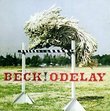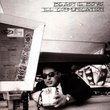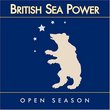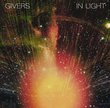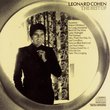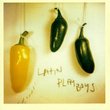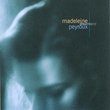| All Artists: Wye Oak Title: The Knot Members Wishing: 10 Total Copies: 0 Label: Merge Records Original Release Date: 1/1/2009 Re-Release Date: 7/21/2009 Genres: Alternative Rock, Pop, Rock Style: Indie & Lo-Fi Number of Discs: 1 SwapaCD Credits: 1 UPC: 673855034621 |
Search - Wye Oak :: The Knot
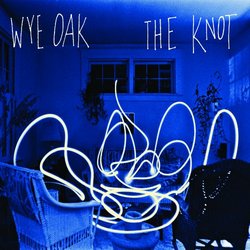 | Wye Oak The Knot Genres: Alternative Rock, Pop, Rock
A set of songs that sway, stretch, and scream while always reaching outward for personal connection. As ever, Andy Stack's production layers his own multi-instrumental arrangements over Jenn Wasner's woozy compositions, bu... more » |
Larger Image |
CD DetailsSynopsis
Product Description A set of songs that sway, stretch, and scream while always reaching outward for personal connection. As ever, Andy Stack's production layers his own multi-instrumental arrangements over Jenn Wasner's woozy compositions, but musically, too, things sound more precise. There's less squalling feedback than before, but lingering violin and pedal steel bring out the droning Americana that has always informed Wye Oak's sound. Similarly Requested CDs
|
CD ReviewsThe Knot Mike Newmark | Tarzana, CA United States | 07/22/2009 (5 out of 5 stars) "I watched a DVD of Frozen River over the weekend and thanked the good Lord I didn't believe in that the protagonist's circumstances were not my own. Released to immense acclaim at last year's Sundance Film Festival, Frozen River plants its focus on Ray Eddy, an upstate New York trailer mom with two sons and a minimum wage job, whose husband (the boys' father) has just run off with the cash Ray was about to spend on a new double-wide trailer to replace their current rat hole. Saddled with this promise to her family, as well as the daily struggle to keep them fed, Ray reluctantly enters the dangerous world of illegal immigration to make several thousand quick bucks, smuggling Korean and Pakistani immigrants across the US-Canadian border in the trunk of her car. Not a thriller, per se, Frozen River is a stark look at simple economic survival that just happens to be really, really scary. More than anything else, it's a story about money--its power to hold relationships together or tear them apart--and a mother's desperate attempts to shield her young children from a painful reality. I thought about this as I was listening to "Talking About Money", a song from Wye Oak's stunning, sobering second record, The Knot. When people "talk about money", particularly with children or significant others, it usually isn't in a good way. It's a discussion that people would like not to have, but which, for reasons dire and immediate, they must. It's amazing how persistent Ray's efforts are not to bring up the topic with her boys; she keeps shoving it away, as if she were trying to get an approaching mountain lion to scram by pretending it isn't there. Her 15-year-old knows the deal ("There's food in the fridge," Ray says, to which her son shoots back, "Popcorn and Tang?"), but her 5-year-old is blissfully ignorant as she skirts the razor's edge to make sure he stays that way. Still, the subject is always lingering in the atmosphere, waiting to be invoked. Likewise, the continuously shuddering guitar and repeated blow of the melodica in "Talking About Money" remind me of an elephant in a room, a dull ache that won't subside until someone decides to address it. "What I owe you is more than how I know you", 23-year-old Jenn Wasner sighs beneath the reverb. This is going to be a tough one. On The Knot, Wye Oak (the duo of Wasner and her boyfriend, 24-year-old Andy Stack) "talk about money" in a way we've scarcely heard since Scrawl's devastating Velvet Hammer. Stack and Wasner didn't intend The Knot to be a relationships record; the music is vague enough, they say, that it could really be about anything. It's just that the joys and sorrows the album explores so thoroughly often occur in the context of intimate relationships. If we are to view The Knot through this lens, it's unique among its kind because it cleaves off the beginning and the end--falling in love and breaking up, essentially--so that only the daily grind of the relationship itself remains. The record's characters seem to be living a mundane nightmare, stuck inside a movie they wish they could walk out of. When Wasner intones in an almost sing-songy taunt, "You couldn't scare me if you tried" on "Siamese", my mind immediately flitted to Marcy Mays threatening her lover to solve a conflict violently in Velvet Hammer`s "Take a Swing". If it weren't for the glimpses of reconciliation and happiness left like breadcrumbs in the woods, the album might simply be too much to take. Wye Oak's vision--where earth tones and bits of Americana blend with longing, bitterness, and cautious hope--is convincing because they've internalized a generation of despondent indie rock and reflected it back as if it were part of their genetic makeup. Slowcore and alternative country feature prominently; I hear the ghosts of Codeine, Red Stars Theory, and early Low in the lumbering, downcast rock guitars, Freakwater and Mark Kozelek in the emotional nakedness and lyrical snapshots of a burnt-out lifestyle. And, of course, Scrawl's punk-turned-sadcore fingerprints are all over it. So the sound of The Knot isn't as original as it is finely tuned and fully realized. A plethora of overdubs and several well-placed effects augment a rather standard instrumental setup: drums, electric guitars (and guitars that sound like basses; as far as I can tell, there is no bass), some violins, a few "peripheral" instruments like melodica and pedal steel here and there. You could be tempted to make a logic leap and interpret the music's richness and depth as lushness and shimmering bliss. Don't. Those who call it shoegaze--and there are many--are missing the point. There's no starkness in shoegaze, after all, no poke of reality in the eyes. It's an escape. The Knot doesn't even come close; it keeps us ever tensed in its grip, the result of Wye Oak's incredible focus and filmic storyboarding that make their quite good debut, If Children, appear jumbled and incomplete. But The Knot is particularly captivating for another reason that speaks more to human peculiarity than the clime of the album itself: it's voyeuristic. As Wasner recounts one side of a fiery exchange, we're watching it happen on the screen of an empty theater or through the window from a house across the street. Things start getting interesting by the third track, "Take It In", a series of unsettling volume shifts that alternate Wasner's softly accusatory lyrics with snarling guitars that convey more information in sounds than she can say in words. "Siamese" is a complex, at times surreal meditation on relational dependency peppered with threats. By the time we get to the sweeping centerpiece, "Mary Is Mary", Wasner is mixing the literal and the metaphorical like pills and alcohol, releasing her sentiments one by one as tiny prayers spilling onto the ground. At what point in the record have we stopped watching all this and started experiencing it ourselves? In my mind I found myself continually placing my hand on the window glass, wishing to reach directly into the drama and save everything. But that's the thing about relationships: some of them can't be saved, and countless doomed couples stumble along together and pay the price instead of cutting their losses. The truth is much thornier than that, but with each passing minute I felt a twinge of dread that something really bad was going to happen if the situation were allowed to proceed normally. And then, it happens. The penultimate track "That I Do" may not be very loud, but darn if it didn't freak the daylights out of me: Over a steely, backwoods guitar hook and a tightened violin sustain, Wasner sings, "I wish you didn't need it anymore / I understand exactly what you use it for". Use what? Suddenly, the song becomes menacing, a stop-start lurch where each gap is akin to a held breath bracing for an explosion. I picture a woman like Ray Eddy holding a gun on her abusive husband in the moments before she walks out of his life forever. The fact that young adults only several years out of adolescence could write a song so frigid with maturity breaks my heart. The brighter "Sight, Flight" following "That I Do" feels weak in context, a too-little-too-late gesture after the damage has hit. If you're looking for a little succor amid the rubble, retrace your steps to the sweet, string-swept "I Want for Nothing" or the perpetual climax of "Tattoo". That's what they're there for. Talking about money. What did Stack and Wasner talk about when they were writing this? They are, after all, in a relationship themselves. In an interview with The Onion A.V. Club, Wasner spoke with no apparent sarcasm about how she and Stack bossed each other around during recording. It's difficult enough to be a duo, but it's ten times harder when love is at stake in the pursuit of making music. Add to that the record's heady content and the fact that conflicts inevitably come with extreme closeness... and I'm a little surprised Wye Oak made it out alive. But they did, and in their triumph they've laid claim to one of the most touching and breathtaking albums of 2009, one with a clear sense of its own power and dynamics that ring true. Maybe that's because no matter how incendiary The Knot becomes, Stack and Wasner always sound like they're on the same team, striving for a mutual goal even while sitting on opposite sides of a wall. One would imagine that any friction between them was actually necessary, not only so that they could tell these haunting stories with such authenticity, but also to reveal their issues, deal with them, and arrive at a better place for it. Isn't that why conflicts exist at all? (This was published in PopMatters on 7/22/09)" The Barbed Sophmore Album Christopher Broome | 12/21/2009 (4 out of 5 stars) " The Knot finds Wye Oak strengthening their songcraft and moving their interplay into more muscular territory. The little legend goes that the group's debut "If Children" was recorded before the band became a touring unit. The songs featured precious multi-tracked vocals and hinted at Phil Elvrum's safest Microphones work. By the release of "The Knot", Wye Oak found their identity as an exceptional live band and started writing songs with performance in mind. The resulting feels a little more country than folk, quite a bit more of the loud-soft dynamics, but the noise builds into white hot squalls not mainstream neo-grunge singalongs. Stack & co also found the best way to record Wasner's vocal tracks: lonesome in light reverb, the Chan Marshall treatment. A good reference point would be Deer Tick's more rough songs (a group they often tour with) except with knowing, somber vocals. The tepid reception from the press struck me as odd. Its as though the national writers pegged Wye Oak as a sister band to (fellow Maryland/Baltimore act) Beach House, and couldn't appreciate a solid "indie-rock" platter from the group." The Best of Baltimore Phil Hostetter | Sterling, VA United States | 04/09/2010 (5 out of 5 stars) "I know I'm supposed to really like Beach House, but Wye Oak is a far better exemplar of the music of Baltimore. This is one I can listen to over and over and not get bored. A very unique and warm sound."
|

 Track Listings (10) - Disc #1
Track Listings (10) - Disc #1